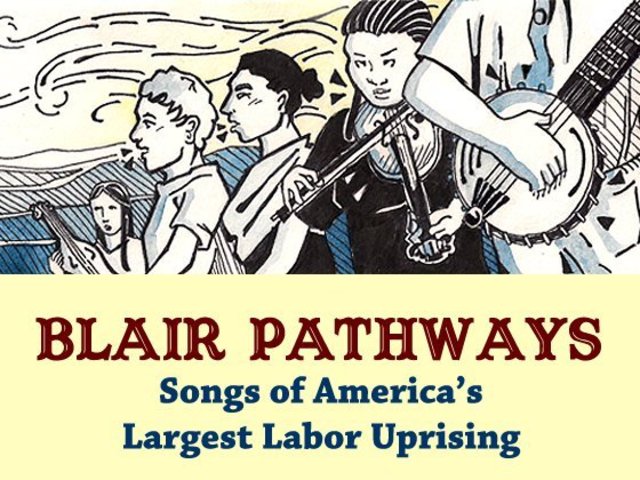Music is a sign of whatever time in which it is created. For the Blair Pathways team, traditional Appalachain ballads, gospel church hymns and labor movement classics are the eyes to a rich and sometimes forgotten part of history. On April 22, Millikin will catch a glimpse into this moment in American history.
“Blair Pathways: A Musical Exploration of America’s Largest Labor Uprising” is a product of Saro Lynch-Thomason, musicians from Appalachia and a fight to save Blair Mountain. This project, centered around the West Virginia coal mine wars of 1900-1921, is a multi-media project that aims to raise awareness of this important moment in union work. It is part of a larger movement to save Blair Mountain from mountaintop removal coal mining and establish it as a national battle site.
Each of the musicians is truly invested in the project “because of with ties to the Appalachian area or to environmental issues. Everyone had an emotional connect and their connections were from different perspectives,” Lynch-Thomason said. That’s what makes this collection of songs so striking and intensely heart-wrenching. The passion that comes through the voice of each singer inspires sorrow, solidarity and curiosity about this unique and powerful part of our American history.
Paired with the CD is an online interactive map that couples every song with a significant location to the coal mine wars and links to essays describing each event and the thematic connection to the song. Each brilliant song, covered by a contemporary artist, and the accompanying essay opens the listener’s ears and reader’s eyes to the fight for unions and workers’ rights that we enjoy today.
“I’d like them to more clearly understand their heritage and history; how their privileges are tied to life and death struggles in labor issues,” Lynch-Thomason said. “I’d like them to put value and have an emotional connection to that heritage, hopefully have an understanding of their connection to mountain top removal.”
Each heartbreaking ballad, rabble-rousing anthem and foot-stomping old-time tune creates a larger and larger window in the heart and mind of its listener, inspiring the curiosity to explore the site, interactive map and historical narrative. “I designed it hoping that the music would be the hook, and then when folks are trying to look at the liner notes, they’ll see that the narrative is tied to the landscape,” Lynch-Thomason said.
“I think music has always been a part of resistance tactics in Appalachia, but I do think this multi-media project is unique in pulling so many elements of this story together,” Lynch-Thomason said. However, this project is more than just a multi-media endeavor. This is a multi-educational and activist, endeavor as well. It connects music with history with contemporary issues that our society continues to battle, both environmental and in the workplace.
The struggle today for the environment and for workers’ rights are tied closely to history, and those moments in history when we were fighting for the same thing. Blair Pathways is a product of this connection, an amalgamation of historical resistance, today’s resistance and our inherently American duty to fight for our land and our rights.
“One of the main things I do want people from the presentation is the connectivity between cultural memory and place. Part of it is meant to stop Blair Mountain from being destroyed through mountain top removal mining, because the destruction of that mountain not only means destroying the environment but the history of that mountain and the life and death struggle for dignity in the workplace,” Lynch-Thomason said.
This stop at Millikin is a part of a month-long Midwest tour for the Blair Pathways project. Saro Lynch-Thomason will provide a lecture-recital on April 22 at 7:30p.m. in PMC. To find out more about the Blair Pathways project and to get involved in the efforts to fight mountain top removal mining, visit www.blairpathways.com.

